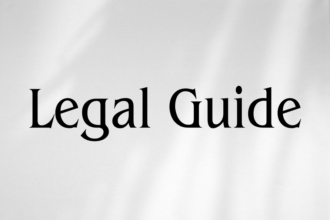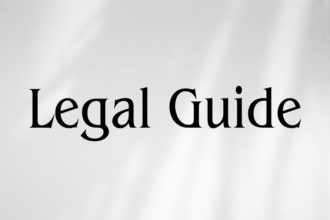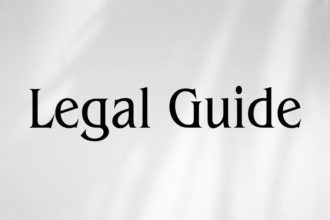Introduction: Strategic Significance of the Higher Sharia Authority in UAE Banking Law
The United Arab Emirates has firmly established itself as a global financial hub, balancing advanced regulatory measures with its commitment to Islamic law principles. A pivotal institution in this regulatory landscape is the Higher Sharia Authority (HSA), which oversees the compliance of UAE banking and financial activities with Sharia. The HSA’s enhanced mandate, as reflected in updated regulations and Federal Decrees, signifies an evolutionary leap in embedded Islamic finance governance, reinforcing both the country’s Islamic and secular legal frameworks.
For business leaders, legal managers, and financial institutions in the UAE, the effective functioning of the HSA carries profound implications. Its guidance shapes core banking products, risk assessment, compliance obligations, and even cross-border financial operations. Understanding the intricacies of the HSA’s role is essential not only due to regulatory requirements but also because of the profound reputational, operational, and legal exposure tied to Sharia non-compliance. With recent legal updates (notably through the Central Bank of UAE’s Board of Directors Resolution No. 18 of 2018, and newer 2025 compliance strictures), this article delivers an in-depth, practical analysis tailored to the evolving UAE legal environment.
This consultancy-grade briefing explores the Higher Sharia Authority’s regulatory scope, its interaction with UAE law and business, and best practices for proactive legal compliance in the financial sector.
Table of Contents
- Concept and Legal Foundation of the Higher Sharia Authority
- Mandate and Recent Legal Developments
- Structure and Key Responsibilities of the HSA
- Scope of HSA Oversight in UAE Banking Law
- Practical Application: Real-World Compliance
- Comparison of Old and Updated Sharia Compliance Protocols
- Case Studies: Impact Scenarios and Practical Examples
- Risks of Non-Compliance and Effective Compliance Strategies
- Conclusion: Looking Ahead and Strategic Recommendations
Concept and Legal Foundation of the Higher Sharia Authority
Legal Establishment and Recognition
The Higher Sharia Authority was formally instituted in 2017 under the auspices of the Central Bank of the UAE, receiving its statutory recognition through Federal Law No. (6) of 1985 Regarding Islamic Banks, Financial Institutions and Investment Companies, later reinforced by the Central Bank Law No. 14 of 2018 and Central Bank Board of Directors Resolution No. 18 of 2018 regarding the HSA’s formation and mandate.
Its creation signified a targeted move by UAE regulators to centralize Sharia oversight, ensuring a unified application of Islamic finance principles across all licensed financial institutions. The HSA’s decisions are binding on all Islamic banks and windows operating in the UAE, substantially elevating the authority’s regulatory influence.
Key Reference Sources
- Central Bank of the UAE official publications and Board Resolutions (especially No. 18 of 2018 and recent 2025 circulars).
- Federal Law No. 14 of 2018.
- Updates from the UAE Federal Legal Gazette and Central Bank circulars as of 2025.
Mandate and Recent Legal Developments
Foundational Mandate
The HSA was envisioned as a “Sharia Supreme Court” in banking, tasked with:
- Establishing general Sharia rules for Islamic banking and finance.
- Ensuring consistency and harmonization across Sharia board practices of individual banks.
- Arbitrating on matters of Sharia compliance at a national level.
2025 Compliance Updates: Strengthening the Framework
From 2022 onwards, a series of legal updates, culminating in the 2025 regulatory tightening, have significantly enhanced the HSA’s scope. The UAE Central Bank’s 2025 Guidance Circulars (see UAE Ministry of Justice official bulletins) now clarify that:
- All Islamic financial products, contracts, and new product launches require explicit HSA approval.
- Financial institutions must align their internal Sharia boards with HSA guidance—previous divergences now risk regulatory censure.
- The HSA can institute binding fatwas on disputed banking products, services, and even marketing claims.
Why These Changes Matter
Unified Sharia governance not only enables international investors and local clients to trust UAE Islamic financial services, but it also strengthens the country’s ambitions to lead in compliant innovation and globalized Sharia standards.
Structure and Key Responsibilities of the HSA
Composition
The HSA comprises distinguished scholars in Islamic law and finance, appointed by the UAE Central Bank Governor based on criteria including legal expertise and banking experience—which is clearly outlined in Board of Directors Resolution No. 18 of 2018.
Core Functions
- Issuing general fatwas and Sharia guidelines for all banking and finance entities.
- Arbitrating between different interpretations within financial institutions’ Sharia boards.
- Advising government regulators and providing input into new financial laws and regulations affecting Sharia-compliant operations.
- Auditing compliance and conducting Sharia reviews of products and contracts across the sector.
Authority and Enforcement
The HSA’s instructions are binding, and its decisions, particularly in dispute resolution or approval of new financial innovations, cannot be contradicted by individual institutional Sharia boards. This was reaffirmed in the 2022–2025 Central Bank resolutions and formalized in the UAE Government Portal’s compliance updates.
Scope of HSA Oversight in UAE Banking Law
Entities and Activities Covered
The HSA oversees the following:
- Islamic banks, Islamic windows of conventional banks, and Islamic financial institutions licensed in the UAE.
- Islamic investment companies, sukuk (Islamic bond) issuers, Takaful operators, and related service providers.
- All customer-facing and internal products—ranging from savings accounts and mortgages to structured finance and derivatives, wherever Sharia compliance is claimed or implied.
Practical Implications for UAE Institutions
Institutions must:
- Secure prior HSA approval for newly designed banking and investment products.
- Undergo regular Sharia compliance audits as scheduled by the Central Bank and the HSA.
- Immediately rectify or remove non-compliant products, policies, or marketing materials upon HSA instruction.
Practical Application: Real-World Compliance
Meeting these regulatory obligations is not a theoretical concern—there are day-to-day compliance requirements that touch every part of an Islamic financial institution’s business. Some critical practical areas include:
- Product Development: New sukuk (Islamic bonds), derivatives, or structured investments must be pre-reviewed and formally approved by the HSA. Legal documentation must reference the specific HSA decisions by number and date, as per Central Bank protocol.
- Internal Policies: Internal controls, staff training, and audit structures must document adherence to HSA resolutions. This includes listed procedures in HR manuals and risk management dashboards.
- Customer Communication: All advertising, public statements, and contractual representations must accurately reflect Sharia compliance as confirmed by the HSA, per UAE Central Bank 2025 clarity standards.
Suggested table: HSA Compliance Process Flow
| Step | Description | Stakeholders |
|---|---|---|
| 1. Product Design | Develop product structure with internal Sharia board | Banks, In-house Compliance, Sharia Board |
| 2. HSA Submission | Submit all documentation for HSA review | Banks, Legal Teams |
| 3. HSA Approval/Fatwa | Receive HSA’s binding decision | HSA, Bank Management |
| 4. Implementation | Launch only post-approval, align policies and marketing | Banks, Marketing, Operations |
| 5. Periodic Audit | Undergo scheduled and random HSA audits | Central Bank, HSA, Audit, HR |
Comparison of Old and Updated Sharia Compliance Protocols
The evolution of Sharia governance principles in the UAE is evident in both regulatory substance and enforcement. The table below highlights the primary differences:
| Features | Prior to 2018 | 2018–2025 (Current/Updated) |
|---|---|---|
| Regulatory Authority | Institutional Sharia boards; limited external oversight | Centralized through HSA; binding on all |
| Product Approval | Internal approval, external only if requested | Mandatory HSA pre-approval of new products |
| Enforcement | Primarily internal, limited sector-level sanction | Central Bank and HSA can impose sanctions/fines, mandate actions |
| Dispute Resolution | Handled internally; inconsistencies among institutions | HSA acts as central arbitrator; decisions binding on all |
| Audit/Compliance | Annual reviews, less frequent external audits | Random, scheduled, and event-driven audits by HSA |
| Transparency | Publicly available fatwas ad hoc | All HSA fatwas published on Central Bank/HSA sites |
For visual clarity, a compliance checklist infographic can be inserted here, summarizing ‘do’s and don’ts’ for banks in light of 2025 HSA rules.
Case Studies: Impact Scenarios and Practical Examples
Case Study 1: Launching a New Sharia-Compliant Mortgage
Background: ABC Islamic Bank plans to launch a new diminishing Musharakah-based mortgage targeting UAE residents seeking Sharia-compliant home financing.
Process: The product’s draft contract and marketing plan are submitted to the HSA for review. The HSA identifies three clauses needing modification to fully adhere to its most recent fatwa on property cost allocation and profit calculation (as published in the 2025 Central Bank update).
Outcome: ABC Bank’s compliance and product development teams amend the contract and policies accordingly. The product is only marketed after receiving HSA’s approval, referencing fatwa #HSA/2025/33 in all offer documents. Failure to wait for approval could have resulted in legal sanctions and reputational damage (refer Central Bank enforcement directive 2024-Q and Central Bank of UAE Circulars, 2024).
Case Study 2: Auditing an Institutional Investment Fund
Background: An Islamic investment company receives notification of a random HSA audit. Review uncovers inconsistencies in profit-sharing on the fund’s portfolio, which diverge from HSA’s published guidelines.
Mitigation & Penalty: The company rapidly corrects the profit allocation methods and agrees to enhanced quarterly HSA monitoring for 12 months. A compliance penalty is levied as per Federal Law No. 14 of 2018 and Central Bank Circular 2022/22.
Case Study 3: Cross-Border Sukuk Issuance
Background: DEF Bank (UAE) partners with a Malaysian counterpart for cross-listing a new sukuk. The foreign partner’s Sharia board initially approves the structure, but UAE law requires HSA ratification before promotion or listing in the emirates.
Lesson: DEF Bank aligns its documents and prospectus with HSA requirements to ensure dual compliance—securing both international investor trust and full local legality.
Risks of Non-Compliance and Effective Compliance Strategies
Risks and Regulatory Consequences
- Legal Exposure: Failure to obtain HSA approval or conform to HSA fatwas can lead to financial penalties (detailed in the Central Bank schedule of fines, 2024 revision), forced product withdrawals, or license suspension in severe cases.
- Reputational Damage: Public disclosure of HSA sanctions (now mandated by Central Bank Circular 2023/19) can irreparably damage customer trust, particularly among clients requiring strict Sharia adherence.
- Operational Disruption: Regulatory intervention post-launch can necessitate costly recall or rework of products already in market, causing customer attrition and loss of business continuity.
Effective Compliance Strategies
- Proactively monitor all HSA updates, circulars, and fatwa releases via the Central Bank official portals and direct notifications.
- Involve in-house or external Sharia law experts at the earliest stages of product development.
- Ensure exhaustive documentation of internal Sharia board decisions and all correspondence with HSA to create an audit trail.
- Establish periodic cross-functional compliance reviews, covering legal, risk management, and treasury teams.
- Train staff—especially client-facing—on the scope and practical impact of HSA directives (HR managers should keep up-to-date manuals and onboarding sessions on the latest 2025 rules).
Suggested table: Penalties for HSA Non-Compliance
| Violation | Legal Reference | Sanction/Fine |
|---|---|---|
| Offering unapproved Sharia products | BOD Resolution No. 18/2018, Central Bank Circular 2024 | Up to AED 10 million and mandatory withdrawal |
| Non-alignment with HSA fatwa | Central Bank Law No. 14/2018 | Fines, potential suspension of relevant activities |
| Inadequate audit documentation | UAE Federal Gazette 2023/6 | Fines up to AED 2 million, intensified audit cycles |
| Misrepresentation in marketing | Central Bank 2025 Circulars | Advertising bans, fines, and public disclosure of breach |
An infographic illustrating the penalty escalation process for repeated HSA non-compliance can enhance client understanding here.
Conclusion: Looking Ahead and Strategic Recommendations
The consolidation of the Higher Sharia Authority’s role marks a critical era for the UAE’s banking and financial sector. As the 2025 legal compliance environment becomes stricter, organizations will face greater scrutiny—and higher expectations regarding transparent, documented Sharia compliance. The UAE’s commitment to global leadership in Islamic finance hinges on both the unity and the credibility delivered by the HSA’s work.
Looking forward, businesses and legal managers should:
- Design compliance frameworks that are future-proof, integrating ongoing monitoring of all HSA decisions and legal updates.
- Foster regular engagement with expert consultants and specialist Sharia advisors, particularly before launching innovative or cross-border financial products.
- Leverage legal technology for real-time tracking of HSA guidance and internal documentation of compliance processes.
By embracing these best practices, UAE financial institutions and their advisers not only reduce regulatory risk but also enhance their reputation among increasingly discerning clients and investors—securing a sustainable competitive edge in a dynamic, compliant market.




